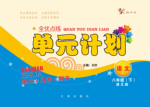题目内容
阅读下面短文,在空白处填入一个适当的词,或填入括号中所给单词的正确形式。
Students learn their lessons in class. This is a way of 1.(learn). Is this 2. only way for students to learn? Of course 3.. There is another way to learn. That is students can teach themselves.
How to teach yourself? The first thing you must do is reading. Read something you are 4.(interest) in. The second is that you must ask yourself 5.(question). The questions are something you don't understand, or you want 6.(know) more about. You can write 7. these questions. The 8.(three) is to answer the questions yourself by thinking hard, by reading the text or other books, and sometimes by asking other people. These are the ways of teaching yourself. 9. you must do these by yourself. If you keep doing like these for a long time, you 10.(get) good grades in your study.
 全优点练单元计划系列答案
全优点练单元计划系列答案He often plays _______piano but never plays_______basketball.
A. /, the B. the, the C. /, / D. the, /
Here is a website about restaurants. Read what people said on the Internet.
Is Goodies good? 7:02 P.M. 12/26 Does anyone know about Goodies next to the Mad?Eye Theater? I want to go there with friends this Saturday. Thanks! |
|
RE: Is Goodies good? 7:30 P.M. 12/26 My dad took me there yesterday. I don't know if it's expensive. He paid. The food was fine, not the best, though. But you must try its papaya(木瓜) ice?cream. I just can't get enough of it! |
|
RE: Is Goodies good? 8:11 P.M. 12/26 Its food is good but its waiters are not. For that price, I think you should go to Awe's. It's a little far from the theater, but the waiters there are friendly, and the food is wonderful. |
|
RE: Is Goodies good? 9:25 A.M. 12/27 Really terrible! I'll never go there again! |
|
1.According to the passage, Crazy P advises Jane·TW to ________.
A. taste papaya ice?cream B. go to Awe's
C. have lunch in Goodies D. go to a better restaurant
2.How many comments(评论) are there in the chart?
A. One. B. Two. C. Three. D. Four.
3.Who thinks Goodies has the worst food?
A. Jane·TW. B. Crazy P. C. Kenny. D. Teddy0530.





